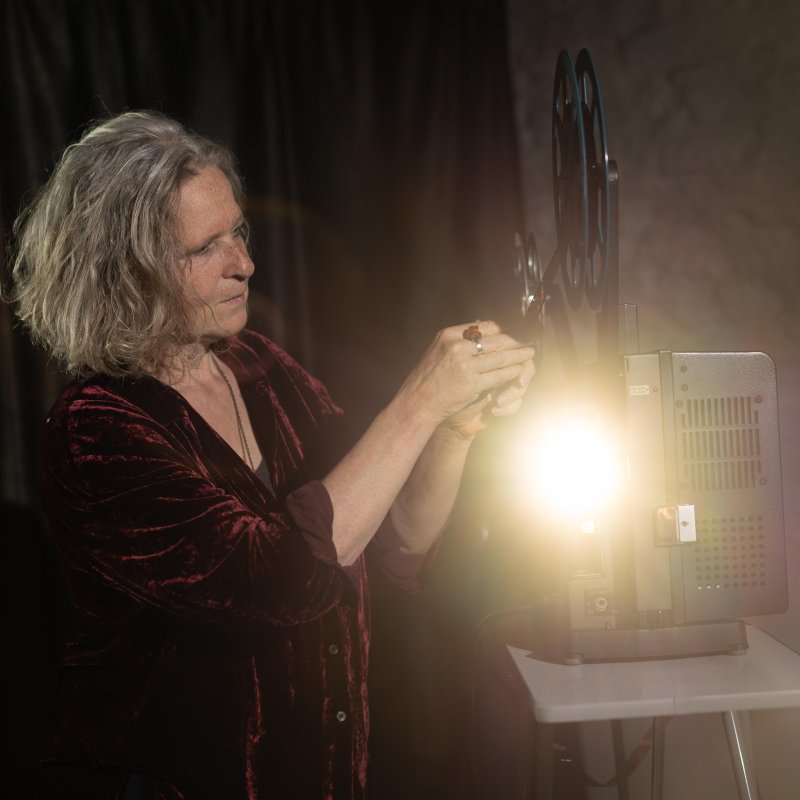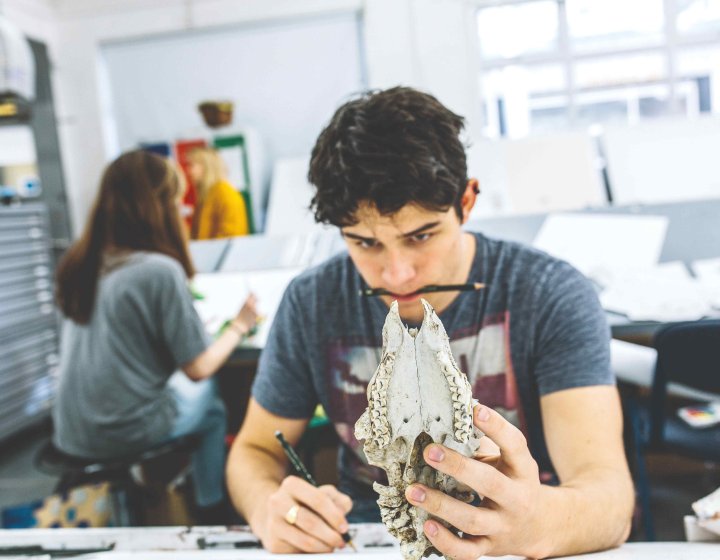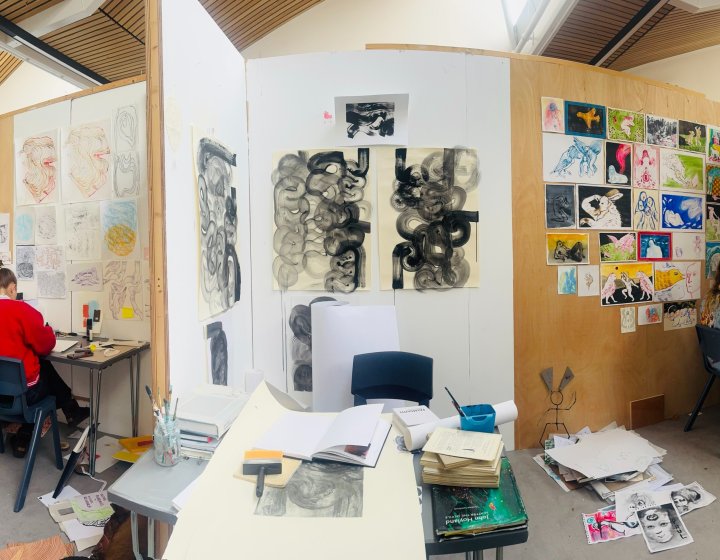Dr Karen Abadie
Associate Lecturer, MA Fine Art and BA Drawing
Dr Karen Abadie is an installation and moving image artist working with video, analogue film and sound, whose films and installations have been shown both nationally and internationally. She employs the materiality of analogue film to articulate ideas of the body, both in the context of human and non-human agencies. She creates haptic immersive installation spaces that situate the human body alongside the mechanical liveness of the analogue machinery, confronting the conflict between the soft fleshy matter of the body and the hard-edged matter of the machine where the celluloid film becomes the mediator between them.
Her current concerns include exploring notions of the abject, both in the human body and in the body of the landscape. Through full body immersion in the cold dark waters of swamp or wet woodlands, she enables an articulation of those embodied sounds we associate with disgust. Through the materiality of analogue film she makes equivalence between the murky dying composing peaty landscape and the dying form of 16mm film. Breathing life into both, raising awareness of the carbon capture nature of wet woodland, and the value of a sustainable analogue practice.
Previously, she worked with autoethnographic methodologies in order to articulate themes of mental health, loss, domestic abuse. She created immersive haptic environments that call audiences to their body in an attempt to subvert the language of ‘mental health’ by bringing attention to our bodies. Karen prefers to install her practice in non-gallery spaces such as with Inner Wilderness (2015), which was a multiscreen installation in a burnt-out church in Devon, and Behind Closed Doors (2017), a multiscreen installation in a domestic environment also in Devon.
Karen’s films have been shown internationally and she has been commissioned to make a series of artists documentaries. Commissions include, Made of Rainbows (2015), a commission by Health Watch Devon to reveal the difficulties that young LGBTQ people experience in the health service, Whispers of the Heart (2016), commissioned by a homeless charity in Torquay, to reveal the challenges young homeless people from the area face and Nature and Knowledge (2016), commissioned by Exeter Library this is an exploration of our relationship with libraries.
Karen regularly collaborates with other artists and researchers to develop practice and is part of CANI-Net (Collaborative Artful Narrative Inquiry Network) and is a new member of The Bodies Collective. She is also in the process of establishing The Embodied Art School, an alternative art school model aimed at developing artist’s practice through embodied research.
Karen teaches in BA Fine Art at University of Plymouth, BA Drawing and MA Fine Art (online) at Falmouth University.
External Links
Qualifications
Qualifications
| Year | Qualification | Awarding body |
|---|---|---|
| 2023 | PhD | University of Plymouth |
| 2012 | MA Fine Art | University of Plymouth |
| 2006 | MSc Change Agent Skills and Strategies | University of Surrey |
Membership of external committees
Associate Fellow, HEAResearch Interests
Research interests and expertise
Karen’s theoretical interests are subjective research, using autoethnographic methods and phenomenological, feminist and new materialist methodologies.
Karen’s current research includes Dialogues of Disorder II, which is a collaboration with Dr Tom Baugh, from Falmouth University and The Birgit Rausing Centre for Medical Humanities in Lund, Sweden exploring the meeting point between scientific and artistic research methodologies, and Abjectification, which explores the Abject in the human and non-human body of Swamps, with Dr Scott Davidson and Dr Nichola Harmer, School of Geography, Earth and Environmental Sciences, University of Plymouth.
Research topics
- Subjective research
- feminism and material feminisms
- The Abject Body
- Embodiment
- Phenomenology
- Mental Health
- Analogue film
- installation practice
Professional Engagement
Engagement with professional associations and societies
- Association of Medical Humanities
- The Birgit Rausing Centre for Medical Humanities in Lund, Sweden
- CAMP, Contemporary Art Membership Plymouth


